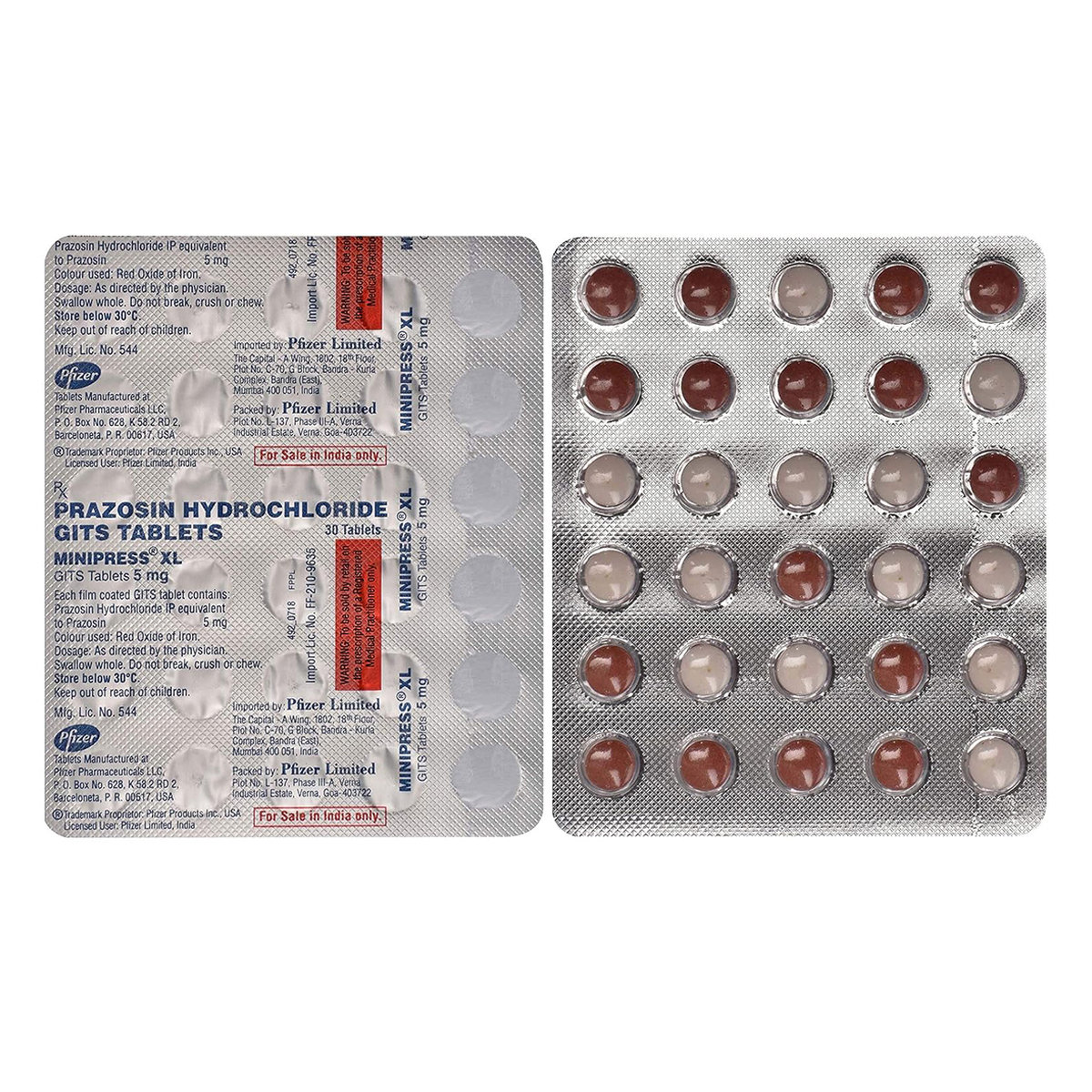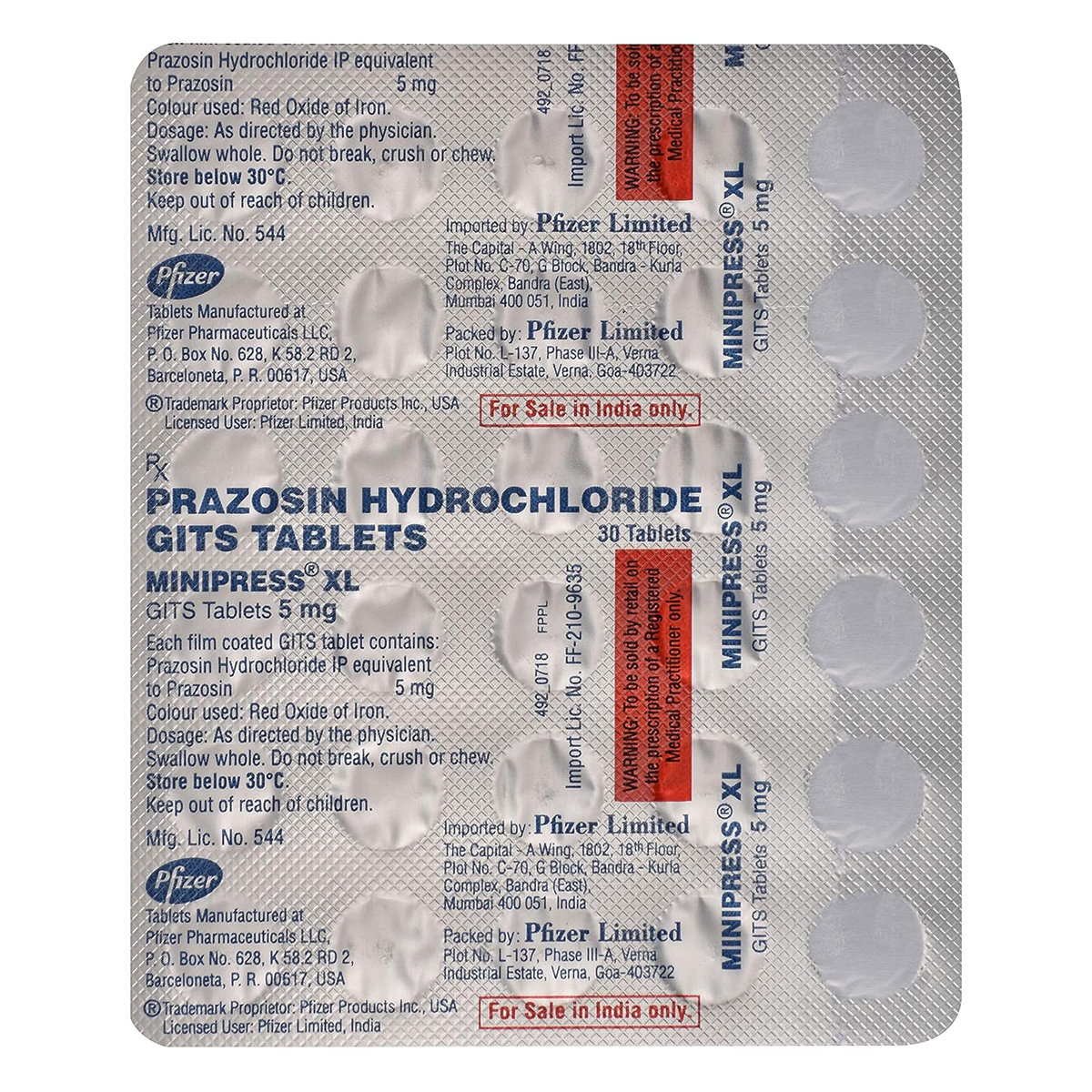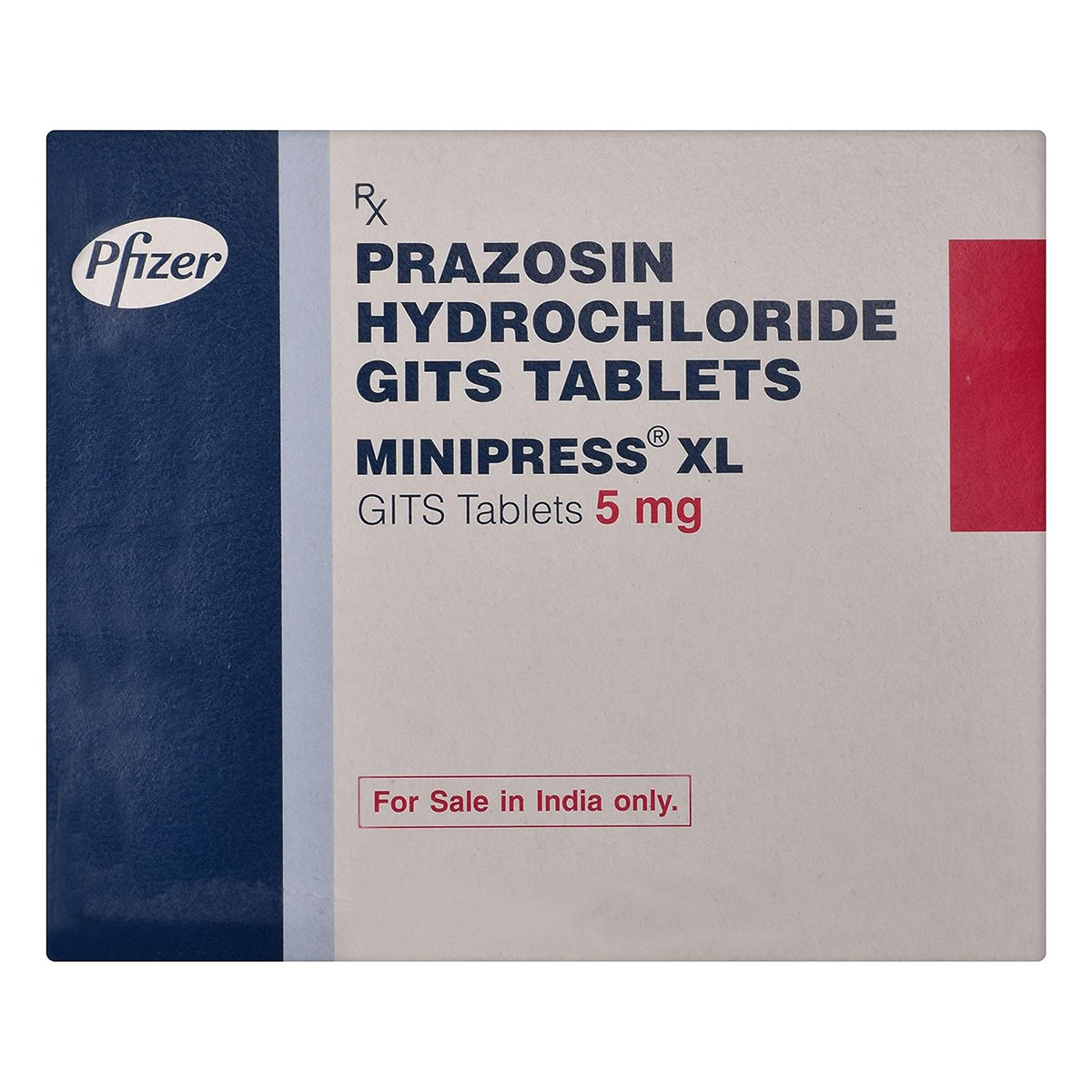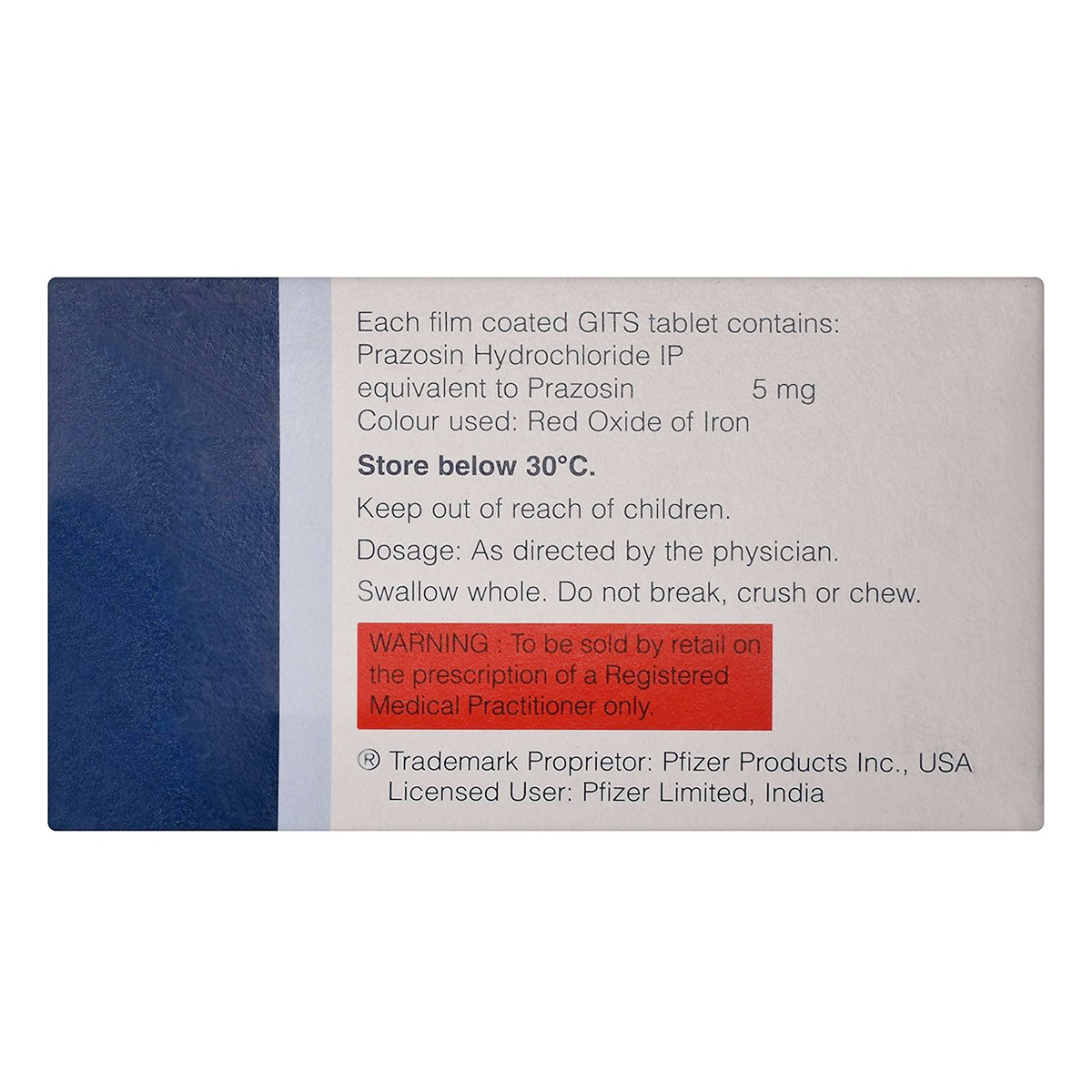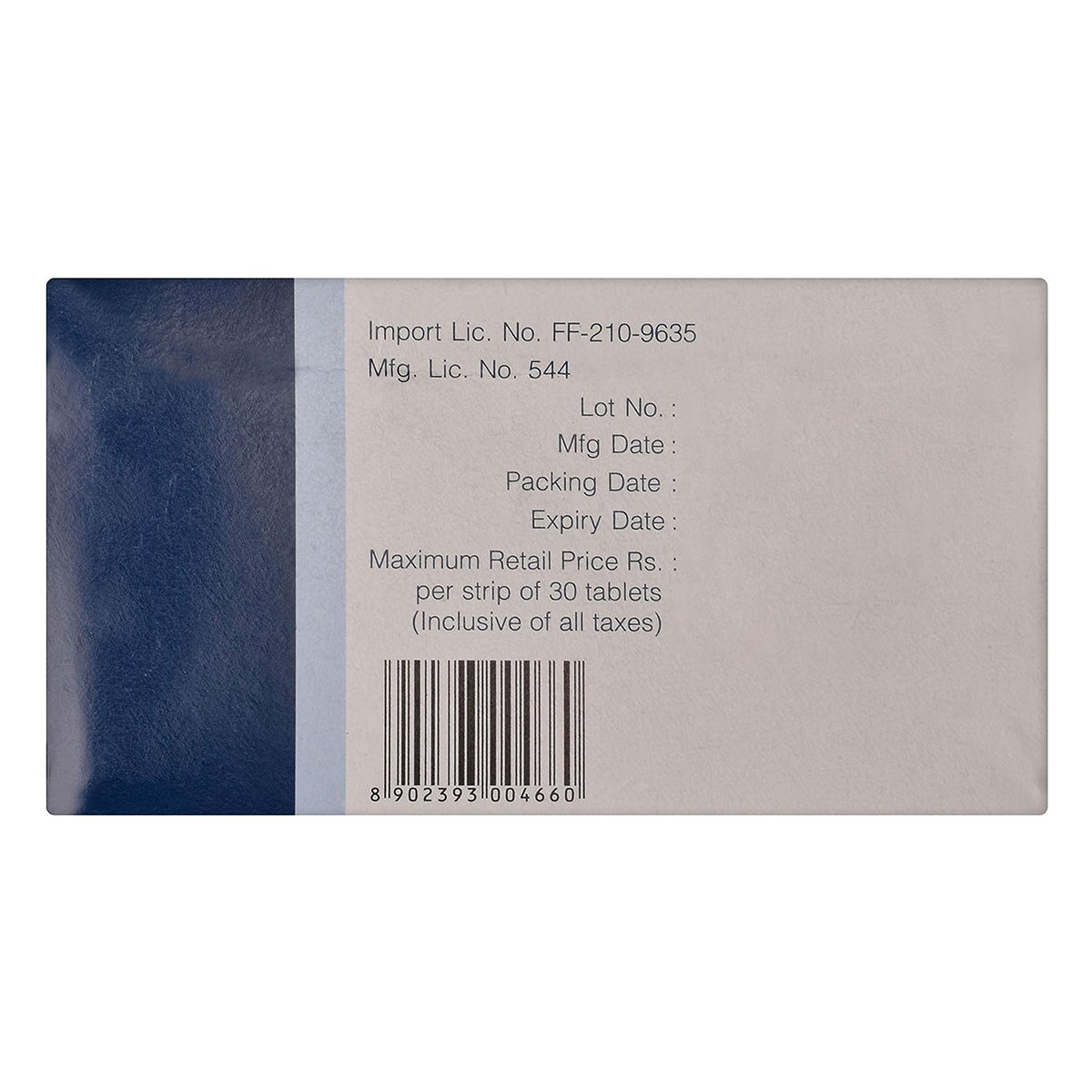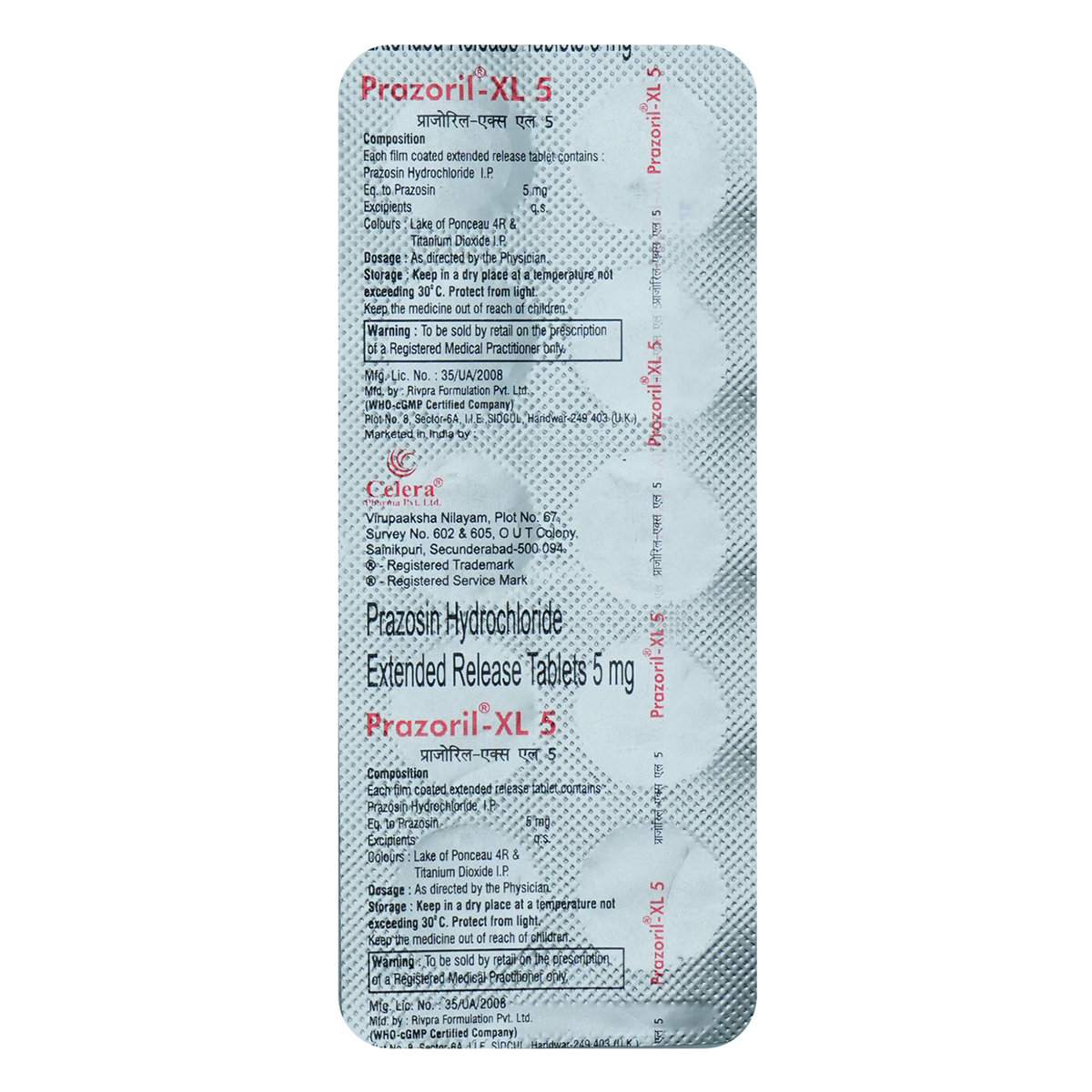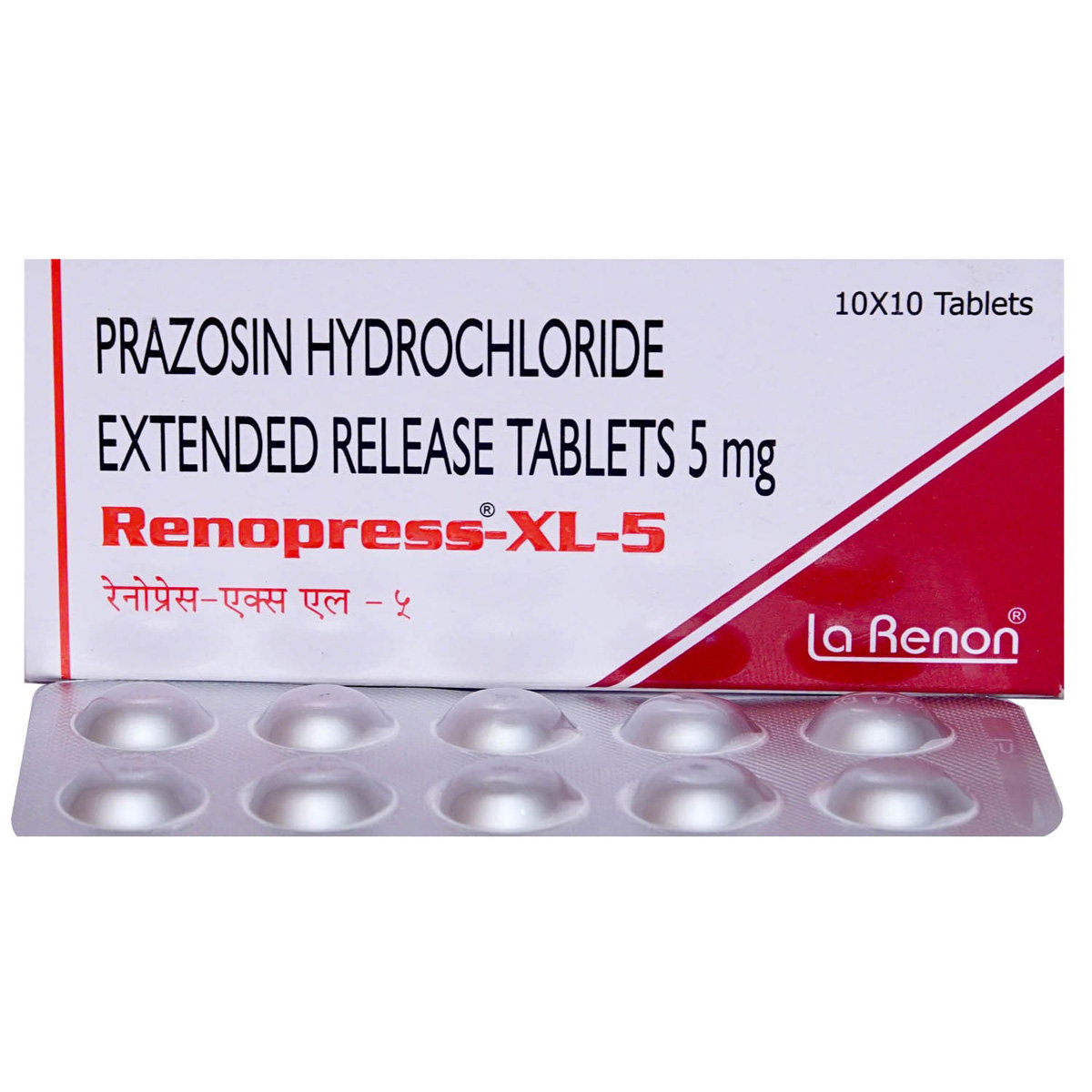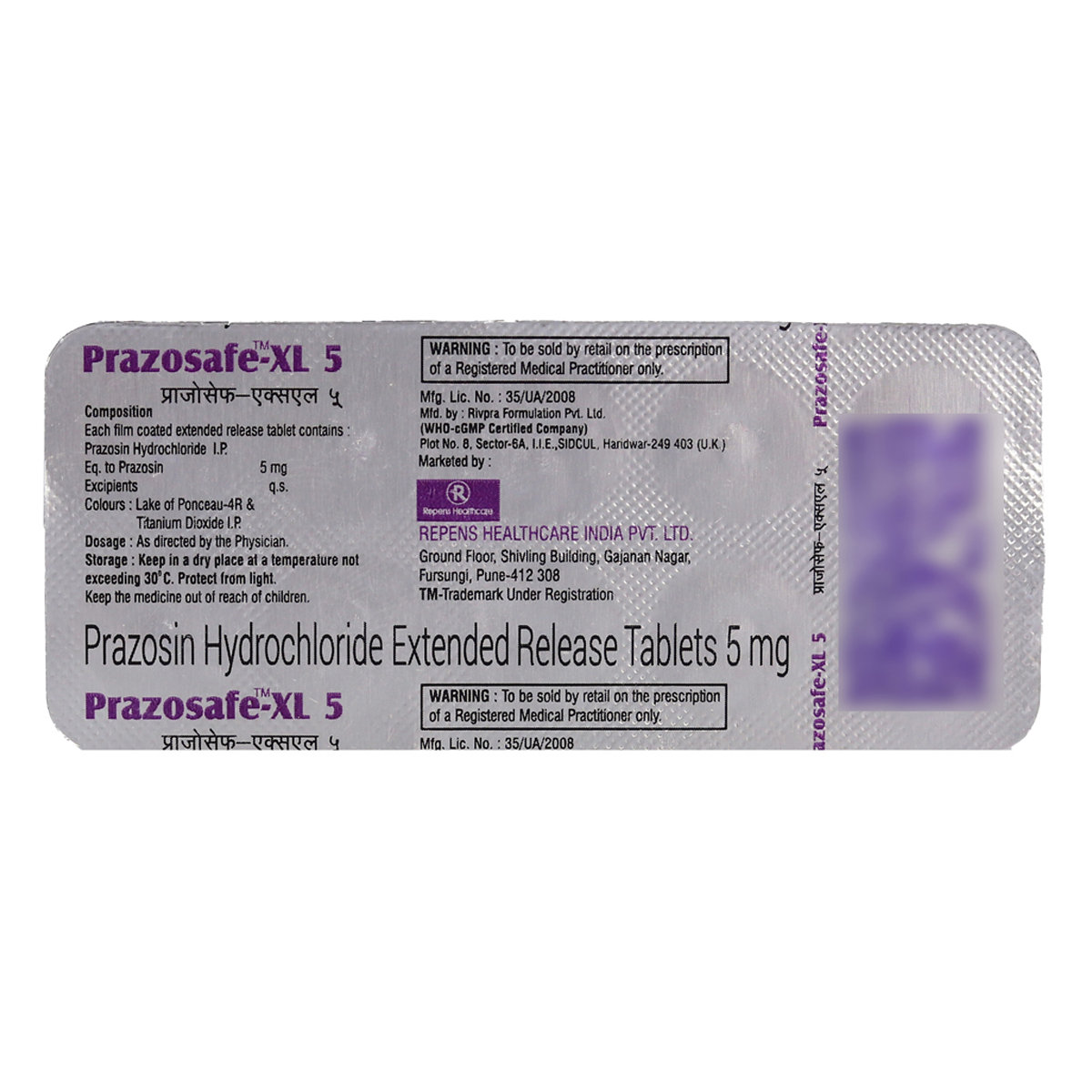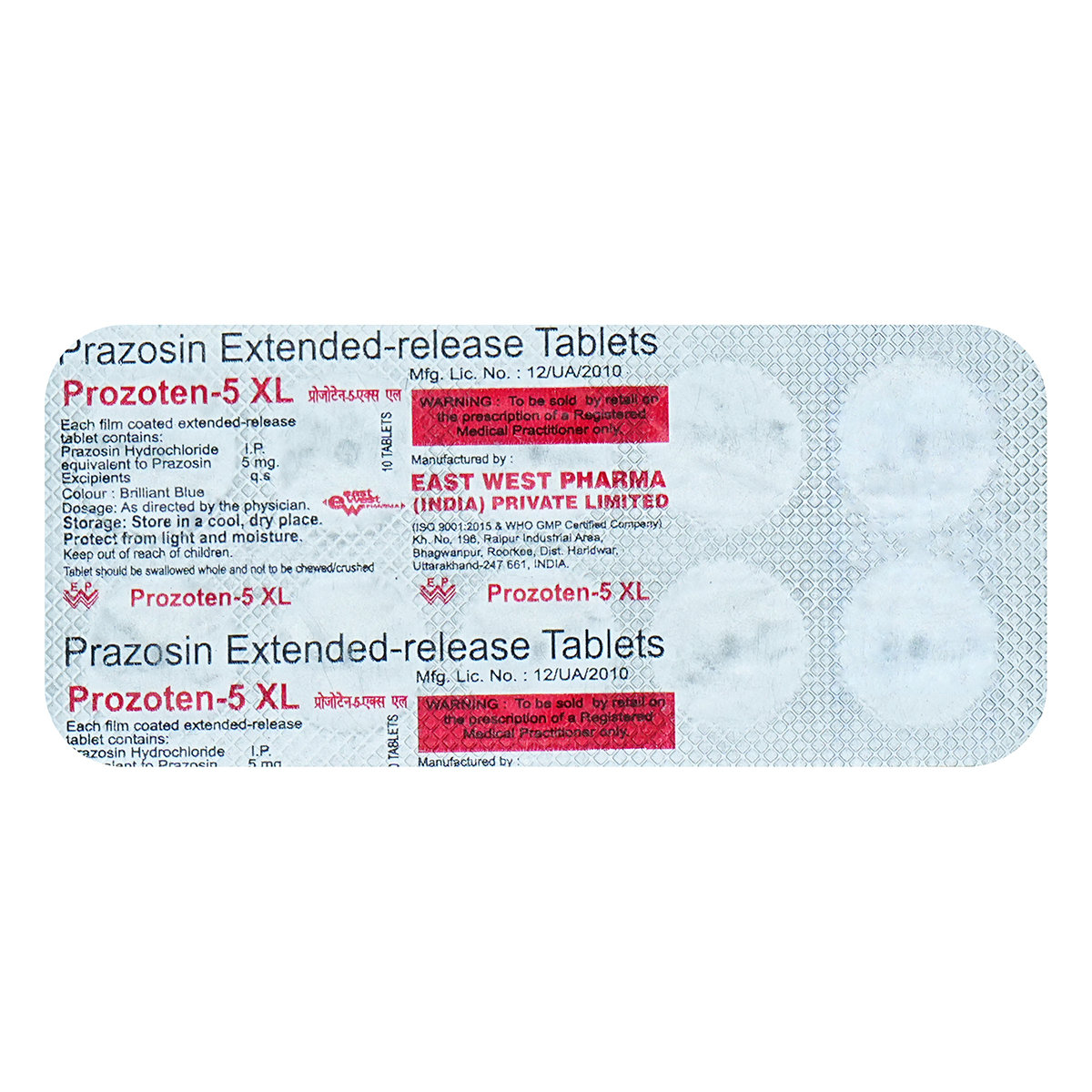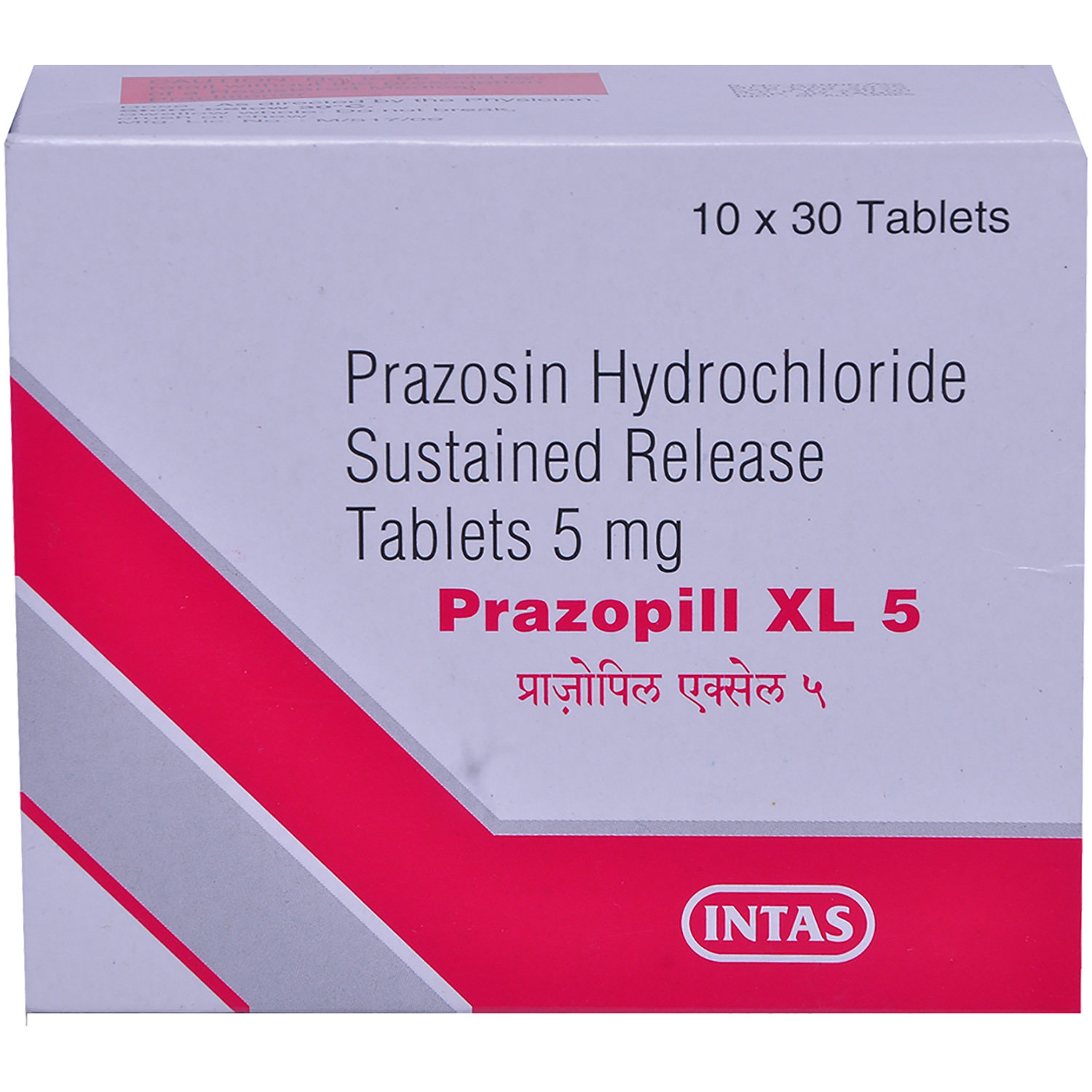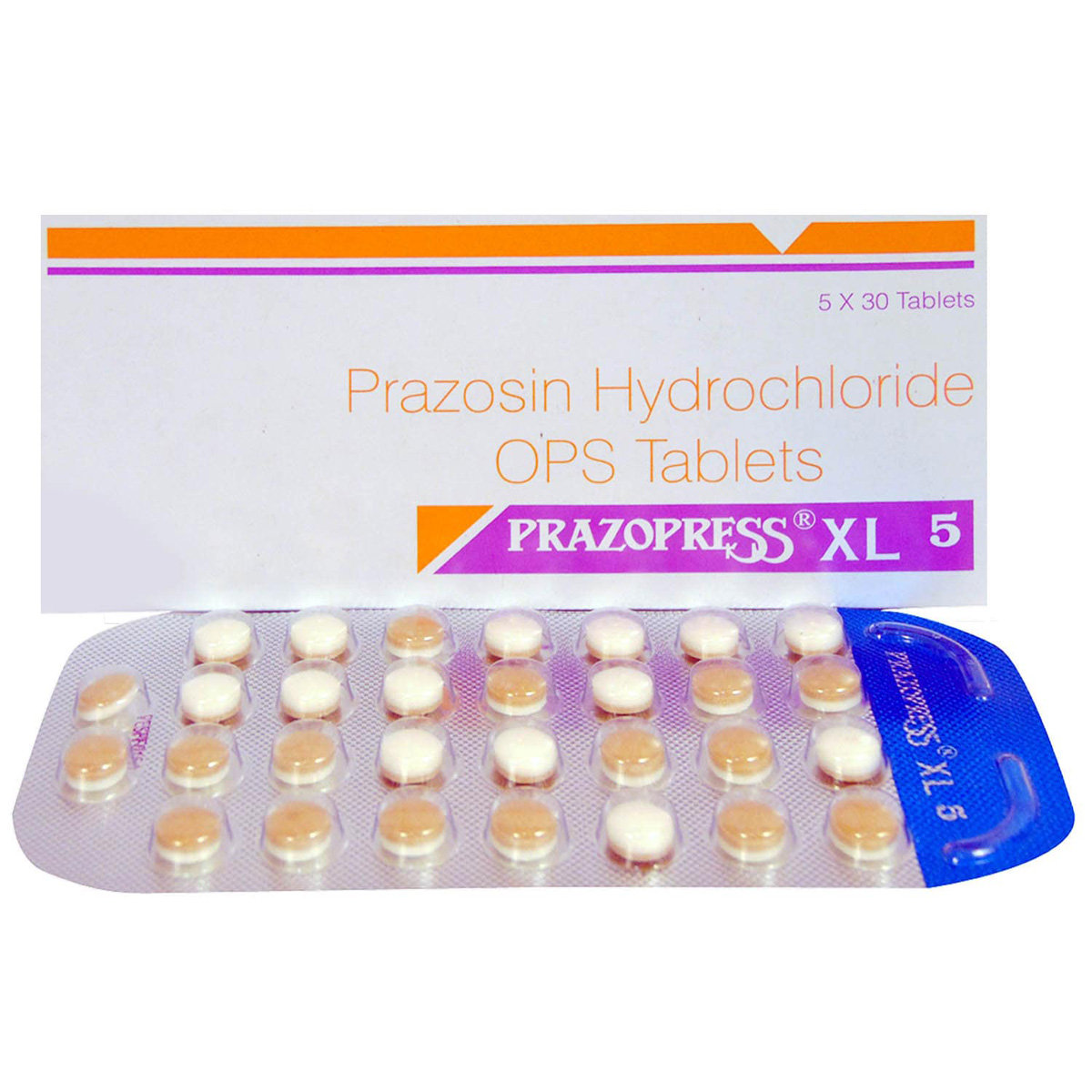Minipress XL 5 mg Tablet 30's
MRP ₹645
(Inclusive of all Taxes)
₹96.8 Cashback (15%)
Provide Delivery Location
Online payment accepted
 Prescription drug
Prescription drugWhats That
Composition :
Manufacturer/Marketer :
Consume Type :
Expires on or after :
Return Policy :
About Minipress XL 5 mg Tablet
Minipress XL 5 mg Tablet contains an 'anti-hypertensive' medication primarily used to treat hypertension (high blood pressure) and lower any future risk of heart attack and stroke. In addition to this, it is also used to treat mild prostate gland enlargement in men (known as Benign Prostate Hyperplasia) and treating heart failure. Hypertension (high blood pressure) is a lifelong or chronic condition in which the blood pressure against the artery walls becomes high. The higher this blood pressure, the harder the heart has to pump.
Minipress XL 5 mg Tablet contains Prazosin, an alpha-blocker, primarily used to treat hypertension (high blood pressure). It acts by relaxing the blood vessels, reducing the heart's workload, and making the heart more efficient at pumping blood throughout the body. Thus, it helps to lower high blood pressure, reducing the chances of any future heart attack or stroke.
Take Minipress XL 5 mg Tablet as prescribed by your doctor. You are advised to take Minipress XL 5 mg Tablet for as long as your doctor has prescribed it for you, depending upon your medical condition. The most common side effects of Minipress XL 5 mg Tablet are drowsiness, headache, weakness, dizziness, priapism (prolonged erections), nausea, and feeling exhausted. They do not require medical attention and gradually resolve over time. However, if the side effects are persistent, reach out to your doctor.
It is advisable to drink plenty of fluids while taking this medicine. Lifestyle changes are beneficial in achieving optimum outcomes with Minipress XL 5 mg Tablet and keeping blood pressure under check. A low salt diet, daily physical activity (even 20-30 minute brisk walking for 5 days a week can help, losing weight in case of people who are obese), etc., are the mainstay of treatment of hypertension. Inform your doctor if you have had an allergic reaction to Minipress XL 5 mg Tablet , are pregnant or are planning to get pregnant, are breastfeeding, have liver disease, kidney disease, heart failure, a heart valve problem, or a history of a heart attack.
Uses of Minipress XL 5 mg Tablet
Directions for Use
Key Benefits
Minipress XL 5 mg Tablet is primarily used to treat hypertension (high blood pressure) and lower the risk of future heart attack and stroke. It is also used to treat mild prostate gland enlargement in men (known as Benign Prostate Hyperplasia) and treating heart failure. Minipress XL 5 mg Tablet contains Prazosin, an alpha-blocker that acts by widening and relaxing the blood vessels, reducing the heart's workload, and making the heart more efficient at pumping blood throughout the body. Thus, it reduces high blood pressure and reduces the chances of a future heart attack or stroke.
Storage
- Drink six to eight glasses of water per day to be healthy.
- Healthy urinary habits can help minimize pollakiuria (frequent urinating).
- Avoid liquids containing caffeine, artificial sweeteners, and soda, as they might cause bladder discomfort.
- Add bladder-friendly foods such as omega-3 fatty acids, blueberries, and cranberries.
- Quit smoking as smoking impairs erectile function by significantly damaging blood vessels.
- Maintain a healthy weight as overweight can cause erectile dysfunction.
- Exercise regularly as physical activity enhances blood flow and overall health, benefiting erectile function.
- Consume a healthy diet loaded with whole grains, fruits and vegetables.
- Limit alcohol consumption as excessive alcohol intake can impair erectile function.
- Manage stress by practicing techniques such as yoga, relaxation exercises or meditation.
- In case erectile dysfunction is due to psychological factors, consider couple counselling or sex therapy to address relationship and anxiety issues.
- Openly discuss your concerns with your partner.
- Talk to your doctor, explain your symptoms and get required treatment.
- Rest for adequate amount of time.
- Use cool compress for cooling effect.
- Slowly wash your eyelids.
- Slightly massage your eyelids.
- Use over-the-counter artificial tears.
- Get medical care immediately if you have pain in or around your eyes, unusual sensitivity to light, redness or discomfort lasts more than a week.
- If you have symptoms of an infection and if you see a sore in your eye consult your doctor and get treated.
- Prepare for a restful night's sleep: Develop a calming pre-sleep routine, like reading or meditation, to help your body relax and prepare for sleep.
- Create a sleep-conducive Environment: Make bedroom a sleep haven by ensuring it is quiet, dark and calm.
- Follow a Sleep Schedule: Go to bed and get up at the same time every day to help regulate your body's internal clock and increase sleep quality.
- Try relaxing techniques like deep breathing, mindfulness meditation and any others.
- Limit stimulating activities before bedtime: Avoid stimulating activities before bedtime to improve sleep quality.
- Monitor Progress: Keep track of your sleep patterns to identify areas for improvement.
- Consult a doctor if needed: If these steps don't improve your sleep, consult a doctor for further guidance and therapy.
- Remember, managing depression as a side effect of medication requires patience, persistence, and collaboration with your healthcare team.
- Tell your doctor about your depression symptoms to adjust medication.
- Consult a therapist or counsel for emotional support.
- Engage in regular exercise to release endorphins (neurotransmitters).
- Practice stress-reducing techniques like meditation and deep breathing.
- Build a support network of friends, family, and support groups.
- Establish a consistent sleep schedule.
- Eat a nutritious diet rich in fruits, vegetables, and whole grains.
- Limit or avoid alcohol and recreational substances.
- Keep a mood journal to track symptoms and progress.
- Tell your doctor immediately if you experience symptoms of Nervousness, such as anxiety, jitteriness, or an increased heart rate, after taking medication or adjusting your medication regimen.
- Your doctor may adjust your medication regimen to alleviate symptoms of Nervousness. This can include switching to a different medication, reducing the dosage, or temporarily stopping the medication. Your doctor may also recommend alternative techniques like relaxation, mindfulness meditation, or journaling. These techniques can help reduce anxiety and Nervousness.
- Practice stress-reducing techniques, such as deep breathing exercises, yoga, or journaling, to help manage Nervousness.
- Engage in regular physical activity, such as walking or jogging, to help reduce anxiety and improve mood.
- Your doctor may advise considering cognitive-behavioural therapy (CBT) or other forms of talk therapy to address underlying anxiety or Nervousness.
- You should maintain regular follow-up appointments with your doctor to monitor nervousness symptoms, adjust treatment plans as needed, and discuss any concerns or questions.
- If you experience nosebleeds or unusual bleeding after taking medication, seek medical attention right away and schedule an appointment to discuss your symptoms with your doctor.
- Your doctor may adjust your treatment plan by changing the dosage, switching to a different medication, or stopping the medication.
- If your doctor advises, take steps to manage bleeding and promote healing, such as applying pressure, using saline nasal sprays, or applying a cold compress, using humidifiers, avoiding blowing or picking your nose, and applying petroleum jelly to the nostrils.
- Schedule follow-up appointments with your doctor to monitor progress, adjust treatment plans, and prevent future episodes.
Drug Warnings
Minipress XL 5 mg Tablet should not be given to the people allergic to Minipress XL 5 mg Tablet , have low blood pressure (less than 90 mm of Hg), have had a heart attack, kidney disease, liver disease, pregnant women or planning to get pregnant and breastfeeding women without the prescription of a doctor. Besides this, it is contraindicated in patients with aortic stenosis (heart valve problem). Minipress XL 5 mg Tablet can pass into breast milk, but its effect on the baby is not known. So, it is better to tell your doctor if you are taking Minipress XL 5 mg Tablet and breastfeeding. As with all alpha-blockers (blood pressure-lowering pills), Minipress XL 5 mg Tablet may cause sudden loss of consciousness due to a sudden dip in the blood pressure with heart rates of 120–160 beats per minute. Low blood pressure (hypotension) may develop in patients given Minipress XL 5 mg Tablet who are also receiving a beta-blocker (blood pressure-lowering pills) such as propranolol. Dizziness, light-headedness, or fainting may occur, especially when rising from a lying or sitting position due to postural hypotension. Getting up slowly may help lessen the problem. During cataract surgery, an eye problem known as Intraoperative Floppy Iris Syndrome (IFIS) has been associated with alpha-1 blocker therapy (blood pressure-lowering pills). If you are undergoing any planned eye surgery, let your doctor know that you are taking Minipress XL 5 mg Tablet .
Drug-Drug Interactions
Drug-Drug Interactions
Login/Sign Up
Taking Tizanidine and Minipress XL 5 mg Tablet together may have additive effects in lowering your blood pressure.
How to manage the interaction:
Taking tizanidine and Minipress XL 5 mg Tablet together can possibly result in an interaction, but it can be taken if your doctor has advised it. Consult your doctor immediately if you experience headaches, dizziness, lightheadedness, fainting, and/or changes in pulse or heart rate. It is advised not to drive or use any hazardous machinery. Do not stop using any medications without a doctor's advice.
Taking Minipress XL 5 mg Tablet and Sodium oxybate together can increase the risk of side effects.
How to manage the interaction:
Although taking Minipress XL 5 mg Tablet and sodium oxybate together can evidently cause an interaction, it can be taken if your doctor has suggested it. Consult your doctor immediately if you experience drowsiness, dizziness, lightheadedness, confusion, depression, low blood pressure, slow or shallow breathing, and impairment in thinking or judgement. It is advised not to drive or use any hazardous machinery. Do not discontinue any medications without first consulting your doctor.
Drug-Food Interactions
Drug-Food Interactions
Login/Sign Up
Diet & Lifestyle Advise
- Keep your weight under control with a BMI of 19.5-24.9.
- Do regular physical activity or exercise for at least 150 minutes per week, or about 30 minutes most days of the week. Doing this can help you to lower your raised blood pressure by about 5 mm of Hg.
- Opt for a diet rich in whole grains, fruits, veggies, and low-fat dairy products.
- Limit intake of sodium chloride (table salt) in your daily diet to 2300 mg per day or less than 1500 mg is ideal for most adults.
- If you are taking alcohol, then only one serving for women and two servings for men is advisable.
- Quitting smoking is the best strategy to lower the risk of heart disease.
- Avoid chronic stress as it can raise your blood pressure. Try to enjoy and spent time with your loved ones to cope with stress and practice mindfulness techniques.
- Monitor your blood pressure daily and if there is too much fluctuation, then immediately contact your doctor.
- Try to include heart-healthy omega 3 fatty acid-containing food drinks in your daily diet. You can also use low-fat cooking oil like olive oil, soybean oil, canola oil, and coconut oil to lower your elevated blood pressure.
Side Effects of Minipress XL 5 mg Tablet
- Drowsiness
- Headache
- Lack of energy, weakness
- Dizziness
- Palpitations
- Lightheadedness
- Priapism (prolonged erections)
- Nausea
- Feeling exhausted
Habit Forming
Therapeutic Class
All Substitutes & Brand Comparisons
RX
Prazoril XL 5 Tablet 10's
Celera Healthcare Pvt Ltd
₹103
(₹9.27 per unit)
52% CHEAPERRX
Prazocel 5 mg Tablet 15's
Calren Care Lifesciences Pvt Ltd
₹178
(₹10.68 per unit)
44% CHEAPERRX
Out of StockPrazonic XL 5 Tablet 10's
Alniche Life Sciences Pvt Ltd
₹127.5
(₹11.48 per unit)
40% CHEAPER
Drug-Diseases Interactions
Drug-Diseases Interactions
Login/Sign Up
FAQs
Drug-Drug Interactions Checker List
- BENAZEPRIL
- METOPROLOL
- RAMIPRIL
- HYDROCHLOROTHIAZIDE
- ATORVASTATIN
- SIMVASTATIN
- SILDENAFIL
- CLARITHROMYCIN
- ERYTHROMYCIN
- RIFAMPICIN
- ITRACONAZOLE
- KETOCONAZOLE
- RITONAVIR
- CARBAMAZEPINE
- PHENYTOIN
- PHENOBARBITAL
- PRIMIDONE
- CYCLOSPORINE
- TACROLIMUS
- IBUPROFEN
- ASPIRIN
Special Advise
- Consumption of Minipress XL 5 mg Tablet may cause dizziness. Avoid activities like driving while on this medication.
- A sudden drop in blood pressure may be seen while on this medication, leading to dizziness. Changing your posture at a slower rate might help counter this.
- Ankle swelling, which can be a sign of oedema, can be experienced as a side effect of this drug. Consult your doctor if this or other side effects cause trouble or are persistent.
Disease/Condition Glossary
Hypertension: Blood pressure is the measurement of the force that our heart uses to pump blood to all body parts. Hypertension is a chronic condition when blood pressure is too high. This condition can lead to hardened arteries (blood vessels), decreasing the blood and oxygen flow to the heart. Raised blood pressure can cause chest pain (angina) and heart attack (when blood supply to the heart is blocked). Additionally, high blood pressure also causes brain damage (stroke) and kidney failure. High blood pressure can be diagnosed with the help of a blood pressure monitor. Blood pressure is determined both by the amount of blood your heart pumps and the amount of resistance to blood flow in your arteries. The more blood your heart pumps and the narrower your arteries, the higher your blood pressure. Even without symptoms, damage to blood vessels and your heart continues and can be detected.
Benign prostatic hyperplasia (BPH): It is the enlargement of the prostate gland. It is a non-cancerous growth of the prostate gland caused due to overproduction of dihydrotestosterone hormone in men. After age 50, most men develop an enlarged prostate gland putting pressure on the urinary bladder. It leads to restricted or obstructed urine flow, the urge to urinate frequently (especially at night), and the feeling of not emptying the urinary bladder.
Raynaud's disease: Also known as cold finger syndrome it causes smaller arteries that supply blood flow to the skin to narrow in response to cold or stress. The affected body parts, especially fingers and toes, might turn white or blue with a cold feeling and numbness until circulation improves, usually when you get warm.

Have a query?
Alcohol
Safe if prescribed
You are recommended not to consume alcohol and Minipress XL 5 mg Tablet to avoid unpleasant side effects like lowering blood pressure (hypotension).
Pregnancy
Consult your doctor
Minipress XL 5 mg Tablet belongs to the pregnancy category C medicine. There is limited evidence regarding the use of Minipress XL 5 mg Tablet and is generally not preferred as the initial treatment of hypertension in pregnancy. It is best to consult your doctor if you have high blood pressure during pregnancy.
Breast Feeding
Consult your doctor
Use of Minipress XL 5 mg Tablet during breastfeeding has not been shown to cause any harmful effects in breastfed babies. If Minipress XL 5 mg Tablet is required by the mother, it is not a reason to discontinue breastfeeding. If you are a nursing mother, it is best to consult your Obstetrician regarding the use of Minipress XL 5 mg Tablet .
Driving
Safe if prescribed
Drive with caution, Minipress XL 5 mg Tablet usually causes drowsiness and affects driving ability.
Liver
Consult your doctor
Minipress XL 5 mg Tablet to be taken with caution, especially if you have or have had a history of liver disease. Your doctor will have to change the dosage depending on your medical condition and your reaction to treatment.
Kidney
Consult your doctor
Minipress XL 5 mg Tablet is generally safe to prescribe in patients with kidney diseases, and dose adjustment is generally not required. However, your doctor will decide the appropriate dosage strength depending upon the severity of your condition.
Children
Safe if prescribed
Minipress XL 5 mg Tablet can be given safely to children aged 6-12 years provided a child specialist has prescribed the dose. Minipress XL 5 mg Tablet should not be given to the children without consulting a child specialist.

